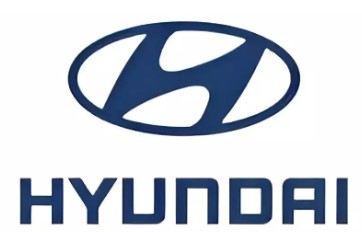
(Photo : Hyundai motor group)
- Hyundai Motor appoints Jose Munoz, a foreign national, as co-CEO, a rare move in South Korean businesses.
- Munoz, credited with Hyundai's commitment to electrification, joins three other co-CEOs.
- The appointment is seen as a strategic move to navigate potential challenges posed by a second Trump administration.
- Hyundai's reshuffle reflects the increasing globalization of corporate leadership and the need to adapt to changing global business environments.
In a significant reshuffle at Hyundai Motor, Jose Munoz, the current U.S. chief and global chief operating officer, has been appointed as co-chief executive officer. This marks a rare instance of a foreign national being appointed to a CEO post at a major South Korean conglomerate. The move comes as South Korean businesses, which have heavily invested in the United States, brace for Donald Trump's second presidency. The leadership change is expected to enhance global competitiveness and help better prepare for uncertainties in the global business environment, according to a statement from the automaker.
Hyundai Motor currently has three co-CEOs. Munoz will join Euisun Chung and Lee Dong-seok, as well as Chang Jae-hoon, who will also become group vice chair overseeing the automotive division. Sung Kim, a former U.S. diplomat who was part of a team assisting President-elect Trump in his first term at a summit with North Korean leader Kim Jong Un, was named president overseeing global external affairs. Hyundai, along with Kia, ranks second in U.S. sales of electric vehicles after Tesla. They are bracing for what could be a huge impact from Trump's pledge to impose tariffs on imports and cut subsidies for EVs.
Trump has also floated the idea of imposing 200% tariffs on cars imported from Mexico, where Kia operates a production site. Munoz, a Spanish native and U.S. citizen, joined the automaker in 2019 and was formerly CEO of Hyundai Motor America. He has been credited with Hyundai's increased commitment to electrification and growth in sales across multiple categories.
Hyundai's Global Strategy and Challenges
Munoz is appointed as the first non-Korean CEO of Hyundai Motor... He is expected to enhance the company's global management systems and further elevate its stature as a leading global brand, the South Korean automaker said. As CEO, Munoz will play a critical role in helping the company navigate potential challenges posed by a second Trump administration, Kiwoom Securities analyst Shin Yoon-chul said.
Hyundai has hired several former South Korean diplomats in recent years to its Global Policy Office in a move widely seen as readying for policy uncertainty under a change in U.S. administration. It brought in Sung Kim as an adviser in January to support Hyundai's response to global trade and policy and external networking. Hyundai Motor has invested $12.6 billion to produce EVs and battery cells in the U.S. state of Georgia - its largest investment outside South Korea, spurred by incentives that came with the incumbent administration's push to shift more of the EV supply chain to the United States and away from Asia.
However, Trump's transition team plans to end a $7,500 consumer tax credit for EV purchases as part of broader tax reform legislation, Reuters previously reported, citing sources. Munoz was once considered a potential candidate to take the lead at Japan's Nissan Motor after the ouster of Carlos Ghosn.
Historical Similarities and Future Implications
This reshuffle at Hyundai Motor is reminiscent of the leadership changes that have occurred in other major global companies, reflecting the increasing globalization and diversification of corporate leadership. In the past, foreign nationals have been appointed to top positions in South Korean conglomerates, but it is still a rare occurrence. This move by Hyundai could signal a shift in the traditionally insular South Korean business culture, opening the door for more foreign nationals to take up leadership roles in the future.
The appointment of Munoz also comes at a time when the global automotive industry is undergoing significant changes, with a shift towards electric vehicles and autonomous driving technology. His experience and leadership could be crucial in helping Hyundai navigate these changes and maintain its competitive edge in the global market.
The potential impact of Trump's trade policies on Hyundai and other South Korean businesses is a significant concern. The threat of tariffs and the cutting of subsidies for electric vehicles could have a significant impact on Hyundai's operations in the U.S. and its overall global strategy.
In conclusion, the appointment of Jose Munoz as co-CEO of Hyundai Motor marks a significant shift in the leadership of the company. It reflects the increasing globalization of corporate leadership and the need for companies to adapt to changing global business environments. The challenges posed by the potential impact of U.S. trade policies are significant, but with strategic leadership and adaptability, Hyundai is positioning itself to navigate these uncertainties effectively. This move is a testament to Hyundai's commitment to innovation and global competitiveness in the face of evolving global market dynamics.









